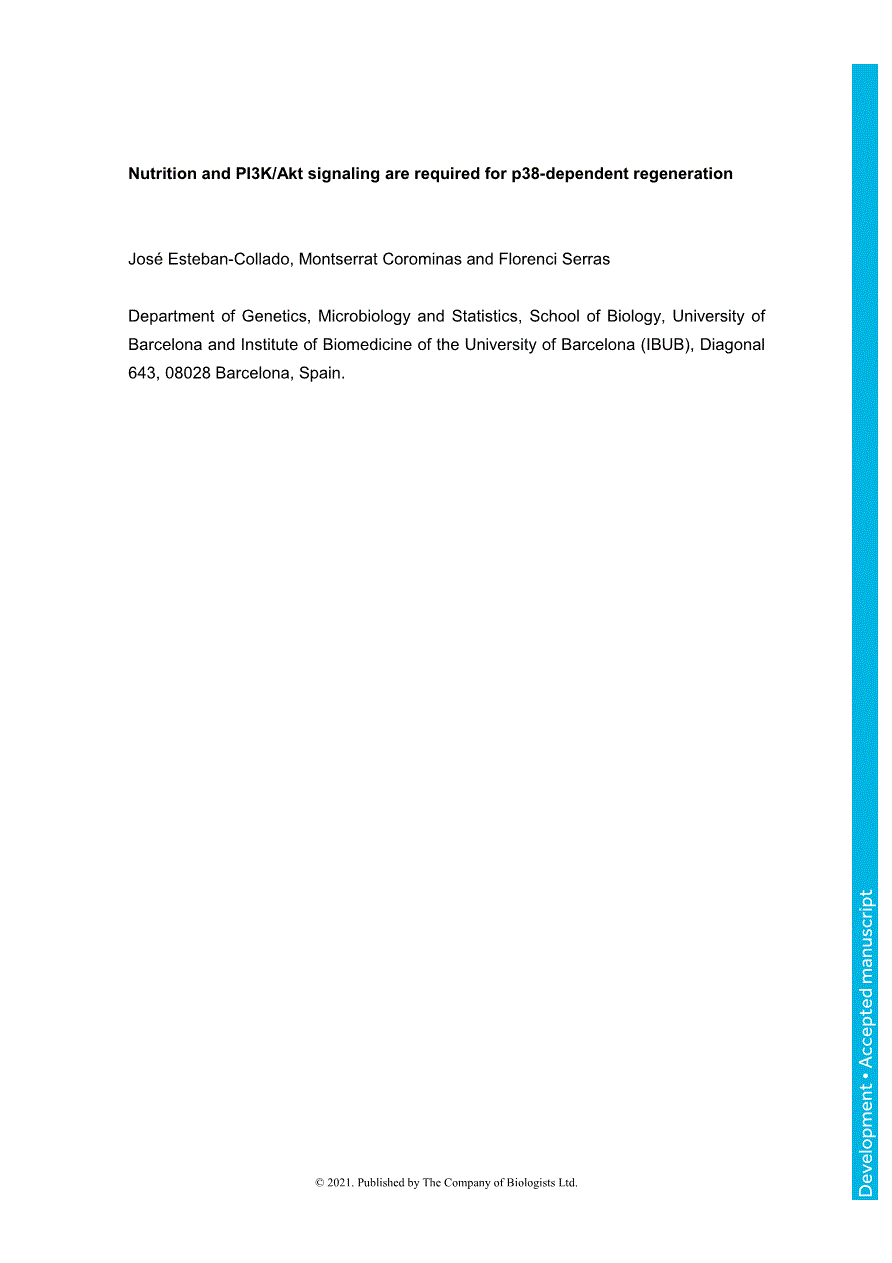Regeneration after damage requires early signals to trigger the tissue repair machinery. Reactive oxygen species (ROS) act as early signals that are sensed by the MAP3 kinase Ask1, which in turn activates by phosphorylation the MAP kinases p38 and JNK. The sustained or high activation of these kinases can result in apoptosis, whereas short or low activation can promote regeneration. In the Ask1-dependent regeneration program, we demonstrate that PI3K/Akt signaling is necessary for Ask1 to activate p38, but not JNK. In addition, nutrient restriction or mutations that target Ser83 of the Drosophila Ask1 protein, a PI3K/Akt-sensitive residue, block regeneration. However, these effects can be reversed by the ectopic activation of p38, but not of JNK. Our results demonstrate that Ask1 controls the activation of p38 through Ser83 and that the phosphorylation of p38 during regeneration is nutrient-sensitive. This mechanism is important for discriminating between p38 and JNK in the cells involved in tissue repair and regenerative growth.
Nutrition and PI3K/Akt signaling are required for p38-dependent regeneration
Currently Viewing Accepted Manuscript - Newer Version Available
José Esteban-Collado, Montserrat Corominas, Florenci Serras; Nutrition and PI3K/Akt signaling are required for p38-dependent regeneration. Development 2021; dev.197087. doi: https://doi.org/10.1242/dev.197087
Download citation file:
Advertisement
Call for papers: Uncovering Developmental Diversity

Development invites you to submit your latest research to our upcoming special issue: Uncovering Developmental Diversity. This issue will be coordinated by our academic Editor Cassandra Extavour (Harvard University, USA) alongside two Guest Editors: Liam Dolan (Gregor Mendel Institute of Molecular Plant Biology, Austria) and Karen Sears (University of California Los Angeles, USA).
Choose Development in 2024

In this Editorial, Development Editor-in-Chief James Briscoe and Executive Editor Katherine Brown explain how you support your community by publishing in Development and how the journal champions serious science, community connections and progressive publishing.
Journal Meeting: From Stem Cells to Human Development

Register now for the 2024 Development Journal Meeting From Stem Cells to Human Development. Early-bird registration deadline: 3 May. Abstract submission deadline: 21 June.
Pluripotency of a founding field: rebranding developmental biology

This collaborative Perspective, the result of a workshop held in 2023, proposes a set of community actions to increase the visibility of the developmental biology field. The authors make recommendations for new funding streams, frameworks for collaborations and mechanisms by which members of the community can promote themselves and their research.
Read & Publish Open Access publishing: what authors say

We have had great feedback from authors who have benefitted from our Read & Publish agreement with their institution and have been able to publish Open Access with us without paying an APC. Read what they had to say.



